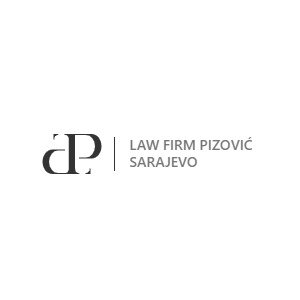Best Faith-Based Law Lawyers in Sarajevo
Share your needs with us, get contacted by law firms.
Free. Takes 2 min.
List of the best lawyers in Sarajevo, Bosnia and Herzegovina
About Faith-Based Law in Sarajevo, Bosnia and Herzegovina
Faith-Based Law in Sarajevo, Bosnia and Herzegovina is rooted in the country’s rich cultural and religious heritage. The legal system accommodates a mixture of civil law influenced by Ottoman and Austro-Hungarian rule, with Sharia law historically playing a role in personal matters for the Muslim population. Although Bosnia and Herzegovina operates under a secular public legal system, many individuals seek guidance from faith-based principles in family law, inheritance, and personal conduct. Religious communities, recognized by law, can influence personal statutes if agreed upon. This creates a unique blend of legal frameworks where religious customs intersect with civil law.
Why You May Need a Lawyer
Individuals may seek legal assistance in Faith-Based Law for several reasons:
- Personal and family matters such as marriage, divorce, and inheritance where religious traditions influence legal procedures.
- Disputes involving religious institutions or issues related to freedom of religion and expression.
- Advice on religious rights and obligations within the public sphere, including workplace discrimination based on religious beliefs.
- Guidance on the integration of religious practices within a secular legal context.
Local Laws Overview
Faith-Based Law in Sarajevo operates under the umbrella of the broader legal framework of Bosnia and Herzegovina, which includes the following key elements:
- Secular Legal System: The state maintains a secular legal framework, while still recognizing the rights of religious communities to adjudicate specific personal matters.
- Family Law: Matters such as marriage, divorce, and inheritance may be influenced by religious law if parties consent.
- Religious Institution Laws: Religious communities are recognized entities that can have particular statutes governing their operations.
- Freedom of Religion: The constitution guarantees freedom of religion, allowing individuals to practice their faith and observe religious principles within the confines of national law.
Frequently Asked Questions
What is Faith-Based Law?
Faith-Based Law refers to legal situations where religious principles overlap with or influence legal decisions, particularly in personal and family matters.
Can religious laws overrule state laws in Bosnia and Herzegovina?
No, state laws generally take precedence. However, individuals may choose to resolve certain personal matters through religious laws with mutual consent.
How do marriage laws work under Faith-Based Law?
Marriage can be conducted under religious rites. However, for legal recognition, it must also be registered with civil authorities.
Are there specific courts for Faith-Based Law in Sarajevo?
There are no separate courts for Faith-Based Law; however, religious community councils can provide mediation in matters governed by religious principles.
Can I use my religious belief to defend against legal claims?
Religious beliefs can be considered under certain circumstances, especially in matters like discrimination cases, but they do not exempt individuals from complying with national laws.
How does inheritance work under Faith-Based Law?
Inheritance can be settled through religious guidelines if all parties agree, but it must be consistent with the civil inheritance laws.
What role does the Islamic Community of Bosnia and Herzegovina play?
The Islamic Community provides guidance and mediation in personal matters for Muslims, aligning religious practices with national laws.
Can non-Muslim religious laws be applied in Sarajevo?
Yes, other recognized religious communities can apply their religious laws internally, provided they comply with national laws.
What are my legal rights to religious expression in Sarajevo?
The constitution protects the right to religious expression, allowing individuals to practice their faith freely within legal boundaries.
Who oversees the application of Faith-Based Law?
The regulation is under the purview of national courts with advisory input from religious councils where applicable.
Additional Resources
For further assistance and information, consider reaching out to the following resources:
- Constitutional Court of Bosnia and Herzegovina - for matters relating to religious freedom.
- Islamic Community of Bosnia and Herzegovina - guidance on Islamic family law and mediation services.
- Local Lawyers and Law Firms - who specialize in faith-based legal issues.
- Bosnia and Herzegovina’s Ombudsman for Human Rights - for issues related to discrimination and religious freedoms.
Next Steps
If you find yourself in need of legal assistance in Faith-Based Law, consider taking the following steps:
- Identify the nature of your legal issue and how it intersects with religious law.
- Consult with a lawyer who has experience in both faith-based and civil law frameworks.
- Engage with the relevant religious community organization for advice and potential mediation.
- Ensure any agreements made through religious mediations are legally recognized by the civil authorities.
- Stay informed by attending local seminars or workshops on Faith-Based Law.
Lawzana helps you find the best lawyers and law firms in Sarajevo through a curated and pre-screened list of qualified legal professionals. Our platform offers rankings and detailed profiles of attorneys and law firms, allowing you to compare based on practice areas, including Faith-Based Law, experience, and client feedback.
Each profile includes a description of the firm's areas of practice, client reviews, team members and partners, year of establishment, spoken languages, office locations, contact information, social media presence, and any published articles or resources. Most firms on our platform speak English and are experienced in both local and international legal matters.
Get a quote from top-rated law firms in Sarajevo, Bosnia and Herzegovina — quickly, securely, and without unnecessary hassle.
Disclaimer:
The information provided on this page is for general informational purposes only and does not constitute legal advice. While we strive to ensure the accuracy and relevance of the content, legal information may change over time, and interpretations of the law can vary. You should always consult with a qualified legal professional for advice specific to your situation.
We disclaim all liability for actions taken or not taken based on the content of this page. If you believe any information is incorrect or outdated, please contact us, and we will review and update it where appropriate.










